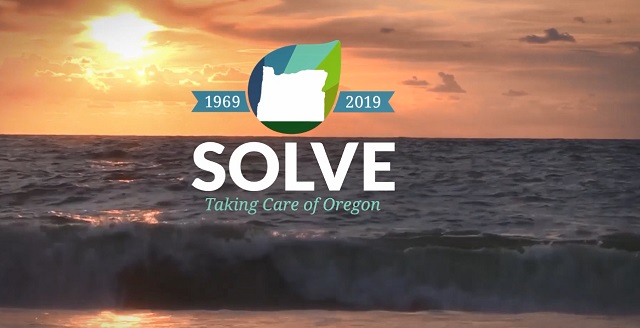PORTLAND, Ore. (KOIN) — “Oregon is demure and lovely and she ought to play a little hard to get. And I think you’ll all be just as sick as I am to find it is nothing but a hungry hussy throwing herself at every stinking smokestack that’s offered. … This activist loves Oregon more than life.”
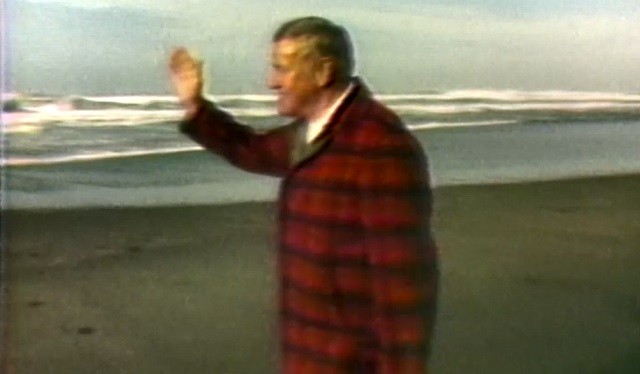
Those immortal words of Oregon Gov. Tom McCall spoken decades ago still inspire a sense of pride in all Oregonians.
Through generations, thousands of Oregonians turned those words into action. They are now part of SOLVE — created by Gov. McCall in 1969, a half-century ago.
Cleaning and caring for Oregon beaches, rivers, forests, from small, rural towns to big cities and neighborhoods, that’s what SOLVE and its volunteers have done.
Oregon 1969
The state of Oregon was facing challenges 50 years ago of uncontrolled growth and pollution. The green clean state wasn’t so green and clean. Trash often washed up on the shores, beaches and rivers.
Kerry Tymchuck said there was “absolutely” more litter at that time than now, “especially cans and bottles on the street. I remember them being on the sides of the street. (There were) many more billboards. Oregon just didn’t have the ethic that it has now.”
Jack McGowan described it as “a toss them out the window society. You know, you finish with a pack of cigarettes, you throw it out. You finish with the candy wrapper, you throw it out.”
McCall, who was newly elected then, pushed for funding to fight Oregon’s growing litter problem. “The problems must be faced or Oregon will be trampled and despoiled beyond recognition,” he said.
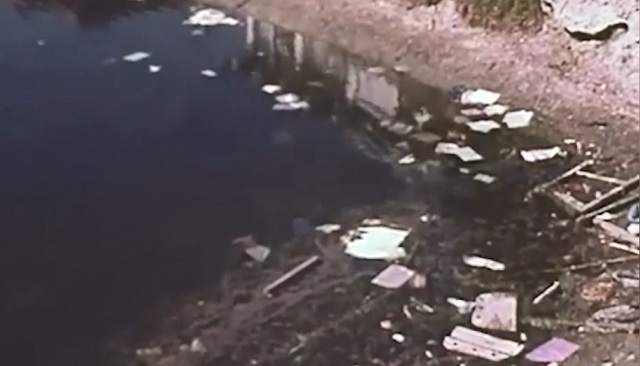
“One of the most important things to him was to get rid of the litter. The disregard for the environment that was existed whenever you saw bottles and stuff on the environment,” said his son, Tad McCall. “My dad had this idea that if you had refundable bottles, that there would be less inclination to throw them away.”
But McCall’s first attempt at an Oregon bottle bill failed. But that political defeat led to a political solution.
“SOLVE,” Tad McCall said, “was put up as this ‘Stop Oregon Litter and Vandalism.’ The beverage industry at the time did not want to have the bottle, the returnable, deposit.”
The beverage industry viewed SOLVE as a harmless volunteer group. But McCall wasn’t done fighting and 2 years later his landmark bottle bill becomes law.
“He not only creates an amazing statewide organizatin that is 50 years strong right now,” McGowan said, “but he also gets one of his 4 pillars of the McCall Administration: The beach bill, the bottle bill, land use planning and SOLVE. Those are the 4 pillars of Tom.”
Tymchuck said, “Once SOLVE started and once the bottle bill passed, Oregonians began to take more interest in the environment. And we developed a reputation fairly quickly as a green state and a state that was ahead of its time, ahead of other states as far as caring for the environment.”
Volunteers took part in SOLVE gatherings, picking up trash and litter. But there was no real stable funding for SOLVE, no leadership.
All there was, McGowan said, “was the muscle of the governor. And when a force like Tom McCall spoke to his staff with the legislature, things got done.”
‘Oregonians are just pigs’
In December 1982, Tom McCall is battling cancer and is admitted to the hospital for the last time.
“I sense that I’m headed to Vahalla like a bat out of hell,” he said.
On January 8, 1983, McCall died. The state of Oregon mourned his passing, but with his death it seemed SOLVE was also dying.
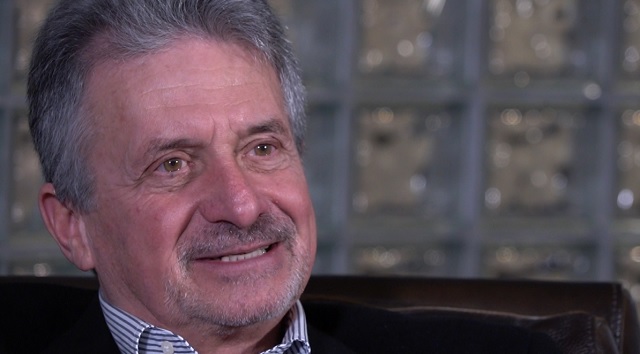
“When Tom passed away, for all intents and purposes SOLVE passed away,” McGowan said. “When that power that was granted as a governor went on to the next individual, it wasn’t about that SOLVE was discounted. It was that other pressing initiatives took the place of SOLVE.”
A year after McCall’s death, SOLVE was approached by Judie Nielson, who worked for the Oregon Department of Fish and Wildlife.
McGowan said she “came to SOLVE and said, ‘You know, I am so tired of the litter that I see on the beach. It is just a horror. There are Oregonians who are just pigs. It’s cigarette butts and beer cans and broken bottles and fire pits and fishing lines and bags of garbage and it’s just horrible. Why can’t we do something about it?'”
SOLVE volunteers answered the call, and hundreds turned out to make history.
“That was the world’s first beach clean up,” McGowan said. “I think what’s so important that Oregonians need to not only understand but appreciate is the immense amount of effort these folks back then was that their legacy, that was their historical document to future generations. And we need not only to understand, not only appreciate, but revere and carry on that message.”
In those years, the beach clean up continued, but SOLVE was still struggling.
“There was a very small organizations of a very dedicated but, if you will, not powerful Board of Directors,” he said.
A leader is chosen
But the board decided it was time to hire SOLVE’s first executive director. And in 1990, Jack McGowan took the job.
“Well, Jack was a force of nature,” Tymchuk, the current executive director for the Oregon Historical Society. “A little bit like Tom McCall: charismatic, energetic, unstoppable.”
“After I said yes,” McGowan said, “they said, ‘Well, this is the reality, Jack: SOLVE has no office, it has no phone, it has no staff, it has a loaned PO box in a cardboard box, it’s got $12,000 in the bank and your first year salary is $10,000 with no benefits. And,” he added, he had “a mortgage, a baby and no place to even call an office.”
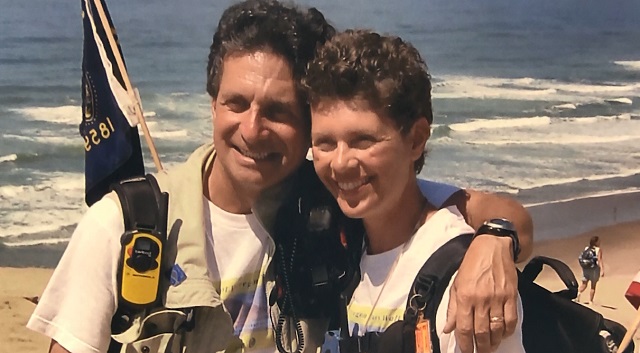
McGowan’s passion and his partner — his wife Jan joined the board — helped push SOLVE forward.
“There was this history of the beach clean ups and we just imagined that that could be multiplied all over the state,” Jan McGowan said. “It could be grown bigger.”
Their plan was to reach out to businesses and corporations, and they started with Portland General Electric.
“The concept was, why don’t we get massive amounts of volunteerism of corporations building an esprit de corps, really getting not only the employees but the employees’ family,” Jack said. “It was Dad and Mom and Grandma and the kids, and they’re coming down to the beach clean ups. The beach clean ups exploded from maybe 12 at the most to 15,000 people. Earth Day clean up went from maybe 300 or 400 volunteers to 5000.”
Other corporations and businesses joined with SOLVE. Cleanups spread from the Oregon beaches to rural areas, cities and towns.
As SOLVE celebrated its 25th year it had become a national and international model of environmental stewardship.
Then in 2001, with SOLVE heading into its 32nd year, Jan had an idea.
“We spent a lot of time at the beach organizing beach cleanup. We love the coast and I was just thinking about the idea of walking the entire coast line,” she said. “Wouldn’t it be amazing to be able to step on every inch of the Oregon coast?”
Thousands took part in the 7-week walk. Some walked a couple miles, others completed the whole journey.
As Jan walked across the Newport Bridge, “we heard someone else on the walkie talkie say, ‘Hey, look! There’s SOLVE! There’s the Oregon Legacy Walk! That’s all those people. They’re raising money for the beach and for the cleanups.’ And that was the moment that it was, like, yeah, this was worth it.'”
When Jack McGowan took over SOLVE, “the ideas came forward including walking the length of Highway 101 from Astoria to Brookings,” Tymchuk said. “It created a lot of publicity for SOLVE and its mission. Jack was very much in Tom McCall’s footsteps.”
Jack and Jan McGowan led SOLVE for 18 years and set it on a firm foundation for future generations.
They did it with determination and passion and discovered something along the way.
“We saw the true spirit of Oregon. We were in the tiniest towns, the biggest city and that was the one thing that was the thread that binded us,” Jack said. “That was people love their state. They want to make their state better. They love their kids. When Governor McCall created SOLVE, he steadfastly refused and ordered that SOLVE would never take a stand on any issue that could alienate one element of Oregon against the other.
“SOLVE is the barn builder of Oregon.”
